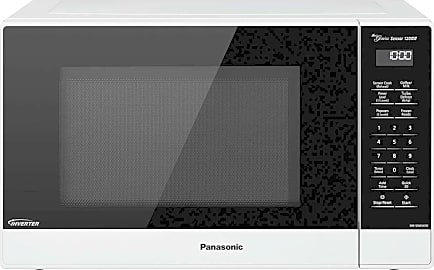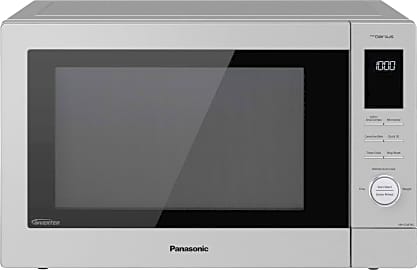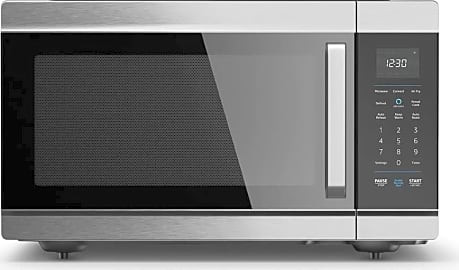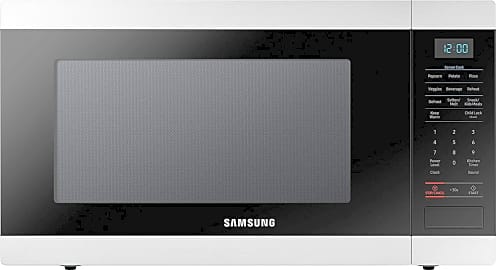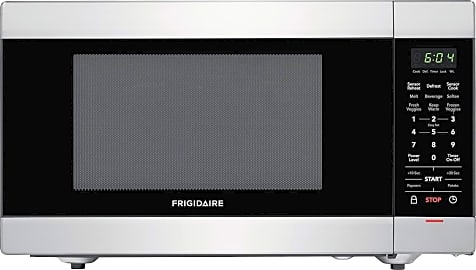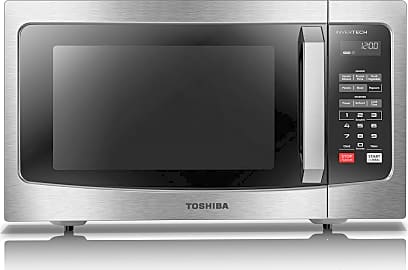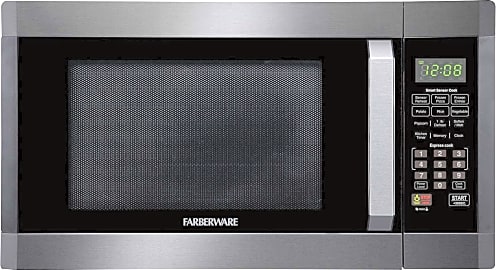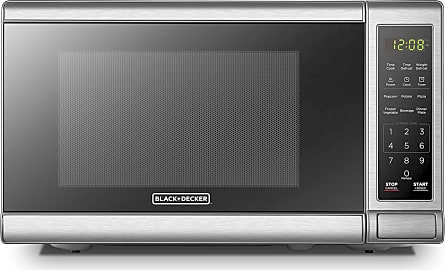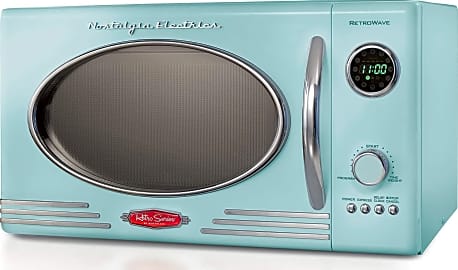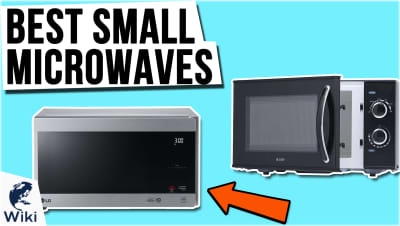The 10 Best Microwaves

This wiki has been updated 46 times since it was first published in May of 2015. Most households today enjoy the convenience of a microwave, whether for cooking full meals, heating up leftovers, defrosting meats and veggies, or simply making popcorn. The models we've selected include some budget-friendly selections and a few with cutting-edge features, and we've ranked them by their capacity, power, value for money, program settings, and overall capabilities. When users buy our independently chosen editorial choices, we may earn commissions to help fund the Wiki.
Editor's Notes
December 02, 2020:
Many of the models included in our previous ranking have been updated by their respective companies, like the highly regarded Toshiba Healthy ML-EC42P. At first glance, much about the two models is the same, but this new model has added air frying capabilities. This is something of a trend in recent microwave development: incorporating additional features like convection ovens and air fryers, so users will have to take up less counter space than ever to get a variety of cooking options.
One model with a convection function is the Amazon Smart Oven, which doesn't feature an air fryer, but that does integrate nicely with Alexa, so you can start preheating it remotely and have dinner ready that much faster.
Another interesting development can be seen on the interior of the Samsung Countertop 950, which eschews the typical materials that bounce microwave radiation around inside your device for ceramic enamel. It's just as effective in the heating process, but it wipes clean much more easily than others and is particularly durable. If this model were a little quieter, it might have landed higher on our list.
December 19, 2019:
As microwaves gain features like weight-based sensors and internal hygrometers that can determine the mass and moisture of the foods inside, manufacturers try to find creative ways to sell these rather complex features to consumers in the simplest terms they can come up with. Unfortunately, that can cause a bit of confusion when a user expects a certain program to suddenly be able to do things automatically and to perfection. The reality is that these new-age features are aids that get these machines closer to perfection than they could before, but it's important not to expect miracles. That said, some companies seem to have a stronger hold on these new technologies than others, and Panasonic's Inverter technology is just one such example. Microwaves with this designation, like the Panasonic Compact Turbo NN-SN67KS and the Panasonic Countertop, are probably your best bet if you're sick and tired of uneven cooking in your oven.
You might also notice that a lot of our list has been either upgraded or replaced, as the sector moves surprisingly quickly to accommodate for even subtle increases in the performance of these new technologies. Models like the Whirlpool and Magic Chef from our previous ranking both had quirks that dated them somewhat, especially the Whirlpool's odd shape. And offerings like the Daewoo and Nostalgia models put too much emphasis on looks and too little on performance, topping out at 700 watts of power and providing little internal space. At least the Amazon Basics 700W we brought in has Alexa integration to modernize it.
Heat Waves
This is a near-instantaneous energy loss, so even if you pull open the microwave doors mid-cook, the unit immediately shuts down, and you're perfectly safe.
There's a lot of technology we take for granted in this world. The lights come on because you flip a switch. The car starts when you turn the key in the ignition, and it goes when you apply the gas, stops when you hit the brakes. As long as these things all function the way they should, we don't have a lot of impetus to figure out what's going on behind the scenes.
I have a lot of friends in the health foods industry. These are the people you meet who only drink alkaline water, who eat a mostly raw diet, who don't drink coffee, etc. They all swear that microwaves are inherently dangerous, evil machines. Whenever they say this, though, I like to ask them why they think microwaves are so dangerous. It's usually at this point that I find out they don't know how microwaves work, and once I tell them, they see just how safe these machines are when used properly.
A microwave isn't any more dangerous than your cell phone. If you break your phone open and consume the cadmium inside, you might see some adverse effect. Likewise, if you rig a microwave up to run with the door open, and you stand staring into it while it runs, you'll probably encounter a problem or two. Beyond those ridiculous examples, you're perfectly safe.
That's because microwaves don't produce dangerous amounts of radiation that'll poison you. They won't even produce enough radiation to harm you from half-way across a small room. What they do produce is a very short wavelength of electromagnetic radiation, the same kind of radio waves that power your FM and AM stations. It just so happens that wavelengths of energy in the microwave portion of the electromagnetic spectrum have a ton of energy in them.
Those waves pass through foodstuffs the same way that light passes through a thick, colored pane of glass. A lot of the energy fails to make it all the way through the food, mainly because it transfers that energy to the molecules of the grub, causing them to vibrate. The faster the molecules vibrate, the hotter the substance.
The moment the microwave turns off, any residual waves lose their energy either in the food or from bouncing off the reflective metal insides of the microwave. This is a near-instantaneous energy loss, so even if you pull open the microwave doors mid-cook, the unit immediately shuts down, and you're perfectly safe.
Micromanaging Your Space
Kitchen real estate is some of the most valuable space in the home, and any appliance that's intended to live on your counter top had better be deserving. I've seen some pretty useless items given a permanent home on the counters of friends and family, only to slowly make the transition from the counter to the cupboard, from the cupboard to the closet, the closet to the garage, and finally from the garage to the garage sale.
The usefulness of a microwave is unquestionable, but that doesn't mean it'll be easy for you to find the perfect spot for it.
The usefulness of a microwave is unquestionable, but that doesn't mean it'll be easy for you to find the perfect spot for it. That's why it's crucial for you to take stock of the dimensions of each microwave on our top ten list. You probably want the highest capacity you can get your hands on, so find out what that is in a size that'll fit somewhere sensible in your kitchen.
Once you've found a couple models that fit, you can compare their features. Today's microwaves all have pretty good programmed settings, as well as kitchen timers, clocks, and express heating functions. On that last note, check to see if the express heating function is a 30 second or one minute auto-cook.
When it comes to microwaves, the fewer buttons you have to push, the better, so if you know what you cook the most you can look for those specific programmed settings, or for the express time interval that suits your style the best.
Speaking of style, the last thing you'll want to consider, which you can integrate into the first point in this section, is the look of the microwave. For example, if everything in your kitchen is stainless steel, a white microwave might stick out like a sore thumb. Try to find a unit that looks as nice as it works, and you'll be more than pleased with your selection.
Melts In Your Pocket
The main element in a microwave, the thing that actually converts the electrical energy into a specific electromagnetic wavelength, is called a magnetron. Technicians and scientists originally employed them in radar technology until one such scientist, a man by the name of Percy Spenser, showed up to work with a chocolate bar in his pocket.
When he fired up the magnetron in his lab, it almost immediately melted the bar he'd brought as a sweet little snack for himself. The discovery led him to eventually patent a "Method of Treating Foodstuffs" in the early 1950s. These early microwave ovens were enormous and expensive, but like all such technology, the competitive marketplace finds ways to make things smaller, faster, and less expensive.
In the 1970s, the microwave really took off, and it has since become a mainstay across the industrialized world. Between 2006 and 20016, sales of microwave ovens dipped below 10 million per year only in the depths of the recession, never dropping below 9 million each year and peaking at nearly 14 million in 2006. I guess you could say that sales are really cooking.


